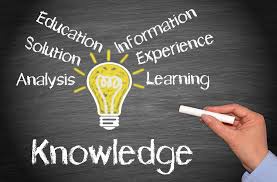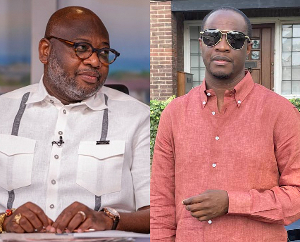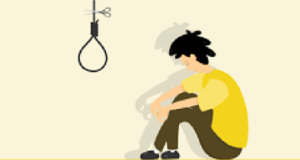I occasionally google my name- not that I have any prominent profile or content online but I feel it pays to have an idea of one’s “web identity”. Perhaps my reason for this behavior was inspired not by my own obsession in knowing what the internet thinks of me but by a subconscious paranoia from a story I read back in March 2014.
A California man googled his name only to find in the search results that he’s on a police department’s most wanted list for murder; just one of several examples of people whose names and images have been associated with stuff online that they have absolutely no connection with and would never be associated with.
I was a bit surprised to find myself in such a predicament when I googled myself on Monday 4th July 2016- a decision that subsequently sent me on a quest to understand the place of enlightenment in an age of abundance of knowledge.
Initially I was delighted to find out that a prominent website in Ghana had found one of my articles worthy enough for publication, however my broad smile was instantly extinguished the moment I noticed the title they had decided to use for the article: “ELECTION 2016: TIME TO OUST WEAK LEADERS AND ELECT A BETTER ONE?”.
The original title was “TIME TO OUST THE CITIZENS AND ELECT A BETTER ONE?” I guess the Editor, in an attempt to create some form of sensationalism and provoke people to read the wisdom in the piece had decided in his/her wisdom and experience to rather use such a provocative title even though the content was kept intact.
Knowing the outrage such a title would provoke especially in an election season, I jumped straight to the comments section momentarily [forgetting the fact that as an unwritten rule I desist from reading comments on websites and platforms knowing just how diabolical people cloaked in anonymity can be].
I was left bewildered by some of the comments left for me- a barrage of unprintable invectives beyond imagination!
Of course, I’m very much aware that in this corner of the world especially “politics” and “reasoning” hardly appear in the same sentence. Once my article was perceived to be political from the title alone I found myself caught up in the crossfire of a war of invectives between some supporters of the two major political parties.
My article was an unbiased piece about appreciating the importance of citizens’ contribution towards the socio-economic development of our motherland.
My amazement was further enhanced by the idea that a person would rather read just the title of an article and feel armed with enough knowledge to offer a rebuttal.
I do agree that literacy cannot always be equated with intellectuality but this experience challenged my long-held assumption that once a person can read and comprehend what’s written they should be able to glean enough knowledge to offer a reasonable comment.
We live in the age of abundance of knowledge, but are we wiser for? Better still, were people more intellectual in the age when information was scarce? Is our generation experiencing a classic case of the famous economics paradox of value? (The contradiction that diamonds are prized higher than water due to scarcity even though water is on the whole more useful). Are we experiencing a paradox of knowledge?
I could introduce you to my uncle who went to school in the 60s and you would have the most enlightening conversation ranging from geography to geometry.
He never earned a degree, didn’t have Google and the closest he has come to technology is a decade old Nokia 3310 phone he owns but he grew up in the age when information was precious mostly because it was difficult to access. Talk to the average graduate today and chances are they might struggle to point Russia on a map.
Ironically though the most irrelevant information receives the most attention- be it two famous rappers “beefing”, a leaked sex tape and other such trivialities.
Of course, this is very understandable since the whole of our civilization hinges on such trivial conversations- through such discussions, we explored the universe, split the atom, eradicated diseases,discovered electricity and invented the airplane etc.
The average person reading this piece has a million friends on Facebook (the worst definition of the word since its invention), is in a thousand Whatsapp groups and receiving a million messages per minute, snap chatting, tweeting, sharing selfies on Instagram whilst listening to some incomprehensible lyrics on Deezerand watching some un-insightful videos on YouTube! The statistics are staggering when you analyze “content consumption” on the internet and juxtapose the relevant with the mundane.
The most important thing that ever happened to our generation is easy and “free” access to information. Whoever controls information has the balance of power tilted their way- knowledge is power or better still knowledge empowers!
A reasonable strategy to keep the people uninformed in the information age is to give them more irrelevant information than they could possibly consume. It’s more like giving an extremely thirsty person a lake to drink - eventually, that person would drown on their very life saver!Such is the paradox of our times.
Don’t worry if you feel I’m painting a rather gloomy picture of our generation because all this is about to change. Soon we’re moving from what I call the Information Overload Age to the Robotic Age- our cars will drive us, our phones will update our social media content and converse on our behalf, our beds will tell us when to sleep, our refrigerators will tell us when to shop and what to buy, our TVs will tell us what to watch, we will not need to read anything because Google will answer all our questions for us…… Such is life’s coming attractions–time to get ready for the age of smart technology and dumb people?!
Writer is a President at Be the Change Foundation. Email: reynoldsak25@gmail.com
Opinions of Monday, 18 July 2016
Columnist: Kwadwo Agyapong Antwi
The knowledge paradox
 File photo
File photo














